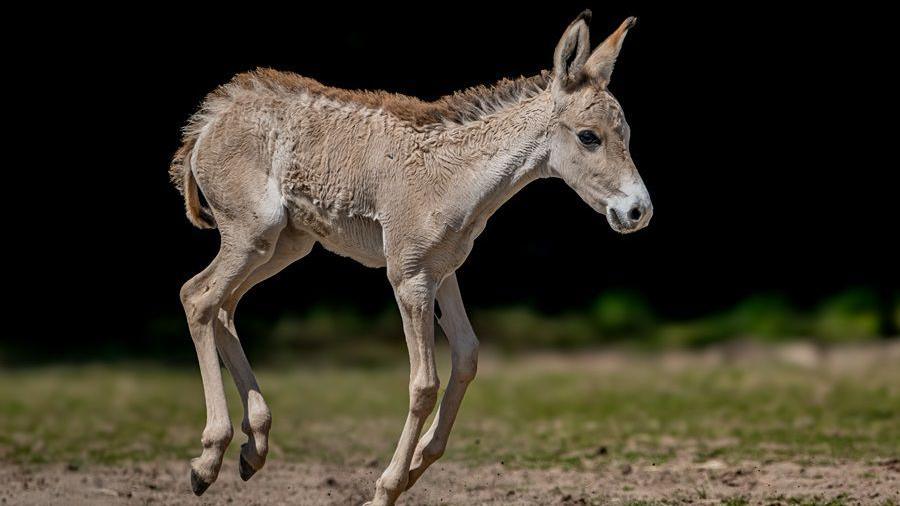Capturing birth of smallest wild cattle 'special'
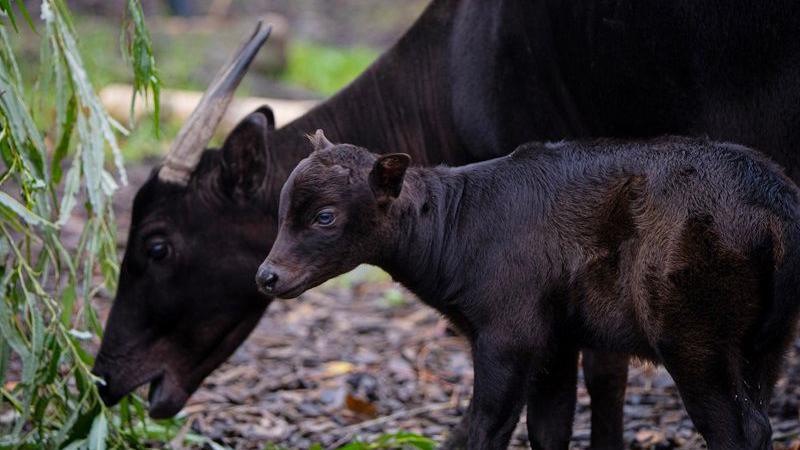
Both mother Darcy and baby Kasimbar are doing well, say Chester Zoo
- Published
The "magical" birth of an anoa - the world's smallest wild cattle species - has been captured on film for the first time, conservationists said.
Chester Zoo said hidden CCTV cameras had recorded the calf's successful delivery after its mother's 10-month pregnancy.
The calf, named Kasimbar by zookeepers, soon scrambled to its feet and took its first steps.
Anoas, which only live in the wild on an Indonesian island, are classified as an endangered species by the International Union for the Conservation of Nature.
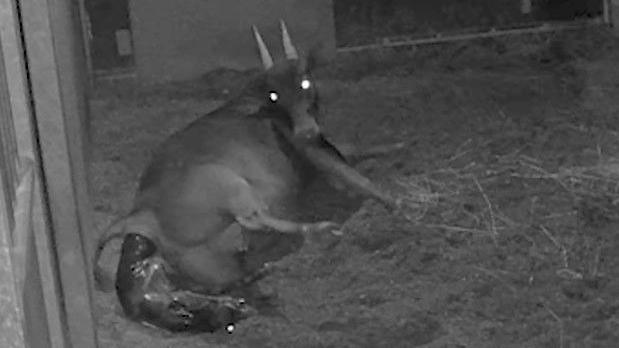
Chester Zoo said hidden CCTV cameras captured "the first recorded footage" of an anoa birth
They can be found in forests and swamps on Sulawesi, where they are sometimes known as "demons of the forest".
Habit loss and overhunting have led their numbers to dwindle in the wild to only about 2,500, said Chester Zoo.
Conservationists said anoas were "in real trouble in the wild", not least because of fears that anoas leave the forest at night and use their horns to attack livestock.
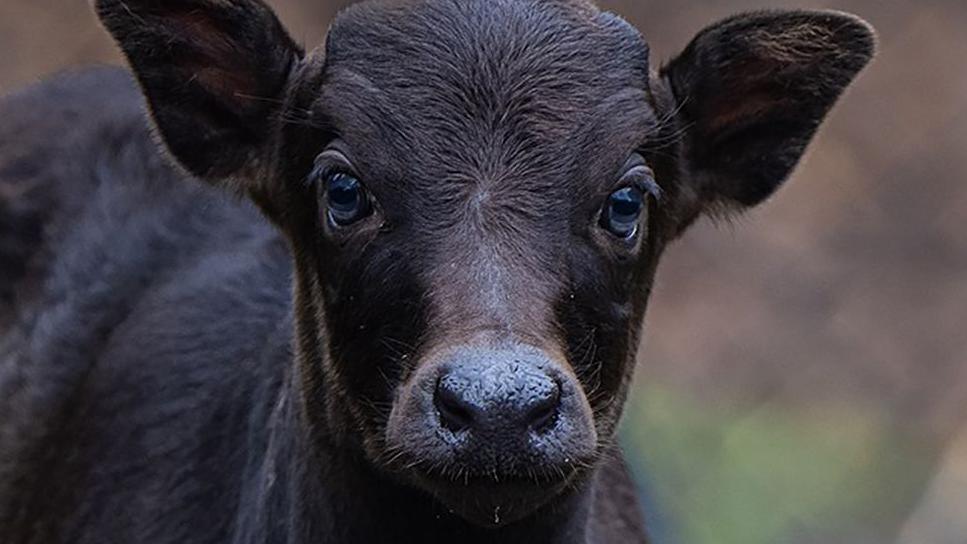
Kasimbar is "bursting with energy", says zookeeper Callum Garner
"Anoa are incredibly shy and elusive animals," said keeper Callum Garner. "So to be able to witness a calf being born and then see those magical first moments between mum and baby is very special indeed.
"Mum Darcy and her new baby, Kasimbar, are doing really well.
"Having spent the first few weeks of life bonding together in their den, the little one has now gained in confidence and is bursting with energy."
Mr Garner said information gleaned from Kasimbar's birth footage may be useful for future breeding projects.
Chester Zoo said it was working with the Indonesian government and the wider international conservation community to protect threatened habitats across South East Asia.
Listen to the best of BBC Radio Merseyside on Sounds and follow BBC Merseyside on Facebook, external, X, external, and Instagram, external. You can also send story ideas to northwest.newsonline@bbc.co.uk, external and via Whatsapp to 0808 100 2230.
Related topics
- Published18 September 2024
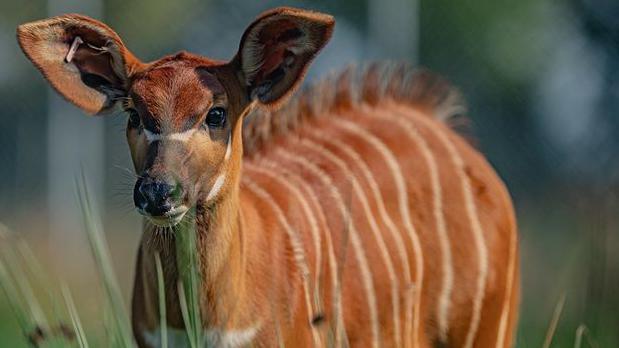
- Published9 August 2024
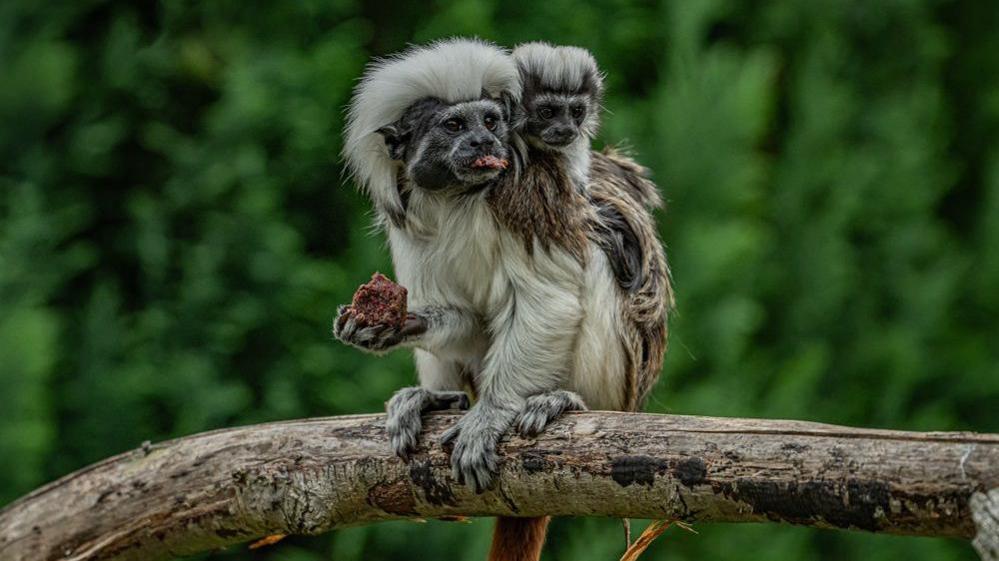
- Published2 August 2024
